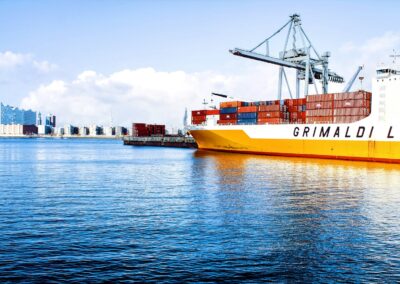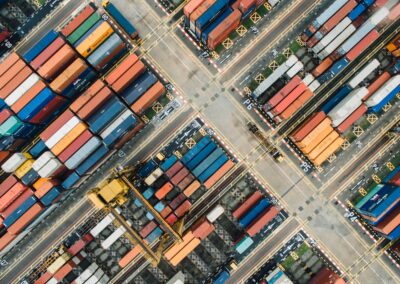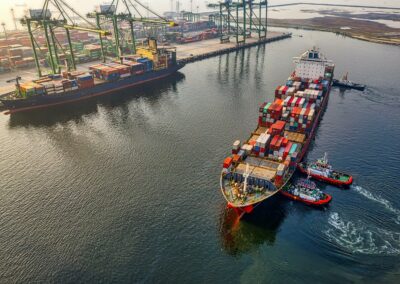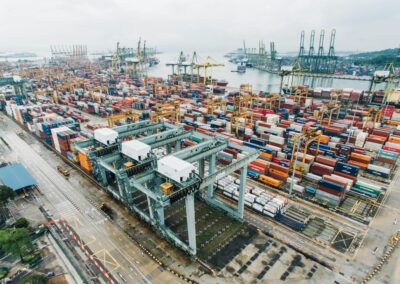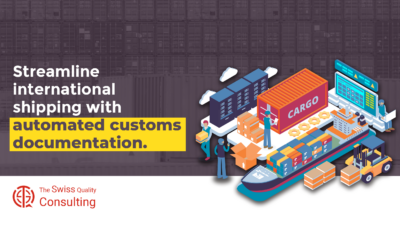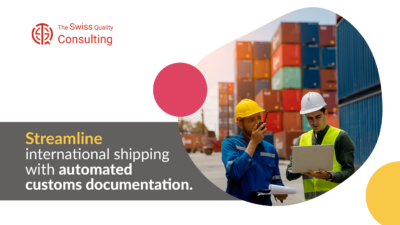5G Networks: The Catalyst for Connected and Autonomous Ships
5G Maritime Autonomy is on the brink of a technological revolution, driven by the advent of 5G networks. This next-generation wireless technology promises to enhance the capabilities of connected and autonomous ships, transforming the way maritime operations are conducted. With its high speed, low latency, and massive connectivity, 5G is set to revolutionize navigation, communication, safety, and efficiency in the maritime sector.
Enhancing Navigation and Communication
5G networks offer unprecedented levels of connectivity and data transfer speeds, enabling real-time communication and data exchange between ships, ports, and onshore control centers. This allows for more precise navigation, optimized routing, and efficient traffic management. With 5G, autonomous ships can access real-time weather data, oceanographic information, and other critical data points, enabling them to make informed decisions and adapt to changing conditions. This level of connectivity also facilitates remote monitoring and control of vessels, enhancing safety and operational efficiency.
Enabling Autonomous Operations
Autonomous ships, also known as self-sailing ships, rely on a complex network of sensors, cameras, and algorithms to navigate and operate without human intervention. 5G networks provide the necessary bandwidth and reliability to support these complex systems, enabling real-time data processing and decision-making. With 5G, autonomous ships can communicate with each other, exchange information with port infrastructure, and receive remote commands from onshore operators. This paves the way for a future where autonomous ships play a significant role in maritime transportation, reducing human error, optimizing fuel consumption, and enhancing overall efficiency.
Improving Safety and Security
Safety is a top priority in the maritime industry, and 5G networks can significantly enhance safety and security measures. 5G-enabled sensors and cameras can monitor vessels and their surroundings in real-time, detecting potential hazards, such as collisions, grounding, or piracy attempts. The high-speed data transfer capabilities of 5G enable rapid response to emergencies, allowing for timely interventions and minimizing the risk of accidents. Additionally, 5G can facilitate the implementation of advanced security measures, such as facial recognition and biometric authentication, to enhance port security and protect critical infrastructure.
Transforming Port Operations and Logistics
5G technology is set to revolutionize port operations and logistics. With 5G-enabled sensors and communication systems, ports can optimize container handling, automate cargo loading and unloading processes, and streamline traffic management. This leads to reduced congestion, faster turnaround times, and improved efficiency. Additionally, 5G can enable real-time tracking and monitoring of cargo, ensuring the timely delivery of goods and minimizing the risk of theft or damage.
Creating New Business Opportunities
The adoption of 5G in the maritime industry is expected to create new business opportunities and revenue streams. Companies specializing in 5G infrastructure, autonomous navigation systems, and data analytics can tap into a growing market. Furthermore, the increased efficiency and cost savings associated with 5G-enabled autonomous ships can open up new trade routes and enhance global connectivity, fostering economic growth and international trade.
The Future of 5G in Maritime
The future of 5G in the maritime industry is bright. As technology continues to advance, we can expect to see even more innovative applications emerge. From autonomous underwater vehicles to smart ports with integrated 5G infrastructure, the possibilities are endless. 5G has the potential to revolutionize the maritime industry, making it safer, more efficient, and more sustainable. By embracing this transformative technology, the maritime sector can navigate towards a future of unprecedented innovation and growth.
Challenges and Considerations
While the potential of 5G in maritime autonomy is immense, there are challenges to be addressed. Ensuring robust cybersecurity measures is crucial to protect ships and their data from cyberattacks. Additionally, regulatory frameworks need to be updated to accommodate the increasing use of autonomous vessels. Collaboration between governments, industry stakeholders, and technology providers is essential to ensure the safe and responsible deployment of 5G-enabled autonomous ships.
#5GMaritime #AutonomousShips #MaritimeTechnology #ShippingInnovation





